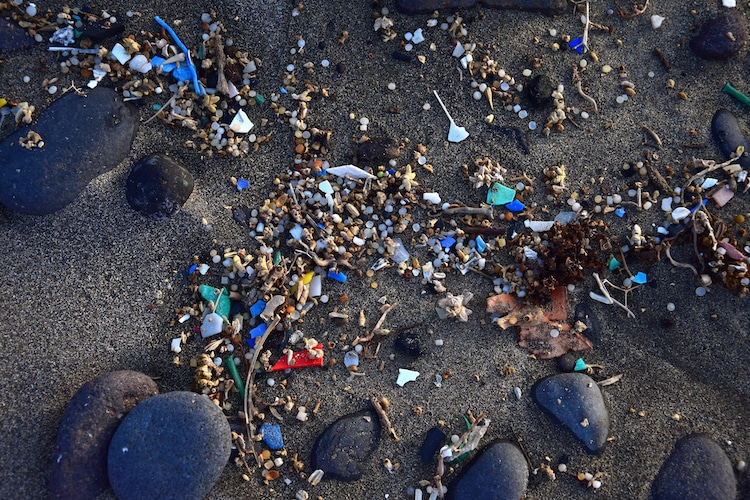
Photo:KAJANI/Depositphotos
The dangers of the micro and nanoplastics floating in our water are a big concern. While efficient and scalable solutions are not yet known, many researchers have begun working on ways to protect human health. A new solution, published by University of British Columbia researchers in Advanced Materials, offers a plant-based and largely organic method of filtering these tricky parts out. Using tannic acid and sawdust, the system obtained a remarkable 99.9% success in removing the particles.
The system created by the researchers uses a pump that pushes water through sawdust. They call the process bioCap. Cellulose, hemicelluloses, and lignin in the organic sawdust make it convenient for water to be transported through. By itself, the sawdust would remove under ten percent of microplastics in the water. However, when tannic acid was added to the sawdust, it made all the difference. This polyphenolic compound is a natural material found in plants. When it was incorporated, tests found that the system filtered 95.2% to 99.9% of all microplastics. Furthermore, the plastics removed were those believed to be most detrimental to humans—such as polystyrene (PS), polypropylene (PP), polyvinyl chloride (PVC), and polyethylene (PE).
The tinniest plastics, under 110 nm, were also tested with the filter. Afterward, mice were fed filtered and unfiltered water. Those drinking the filtered water were found to possess fewer plastics in their body. “Most solutions proposed so far are costly or difficult to scale up,” Orlando Rojas, paper author, said in a statement. “We’re proposing a solution that could potentially be scaled down for home use or scaled up for municipal treatment systems. Our filter, unlike plastic filters, does not contribute to further pollution as it uses renewable and biodegradable materials: tannic acids from plants, bark, wood and leaves, and wood sawdust—a forestry byproduct that is both widely available and renewable.” This research offers a ray of hope in the continuing endeavor of removing micro and nonplastics from water so that everyone can drink safely.
A new plant-based filter removes 99% of microplastics from water, providing a potential solution to improving human health.

Photo: SUSANNEFRITZSCHE/Depositphotos
h/t: [New Atlas]
Related Articles:
What Is an Ecobrick? Learn About How You Can Build Things Using Your Plastic Trash
Researchers Develop a Way To Transform Plastic Into Soap
Giant “Faucet” Spewing Single-Use Plastic Urges Us To Reconsider Our Plastic Use
Scientists Discover Fungi That Can Eat Plastic in Just 140 Days






















































































